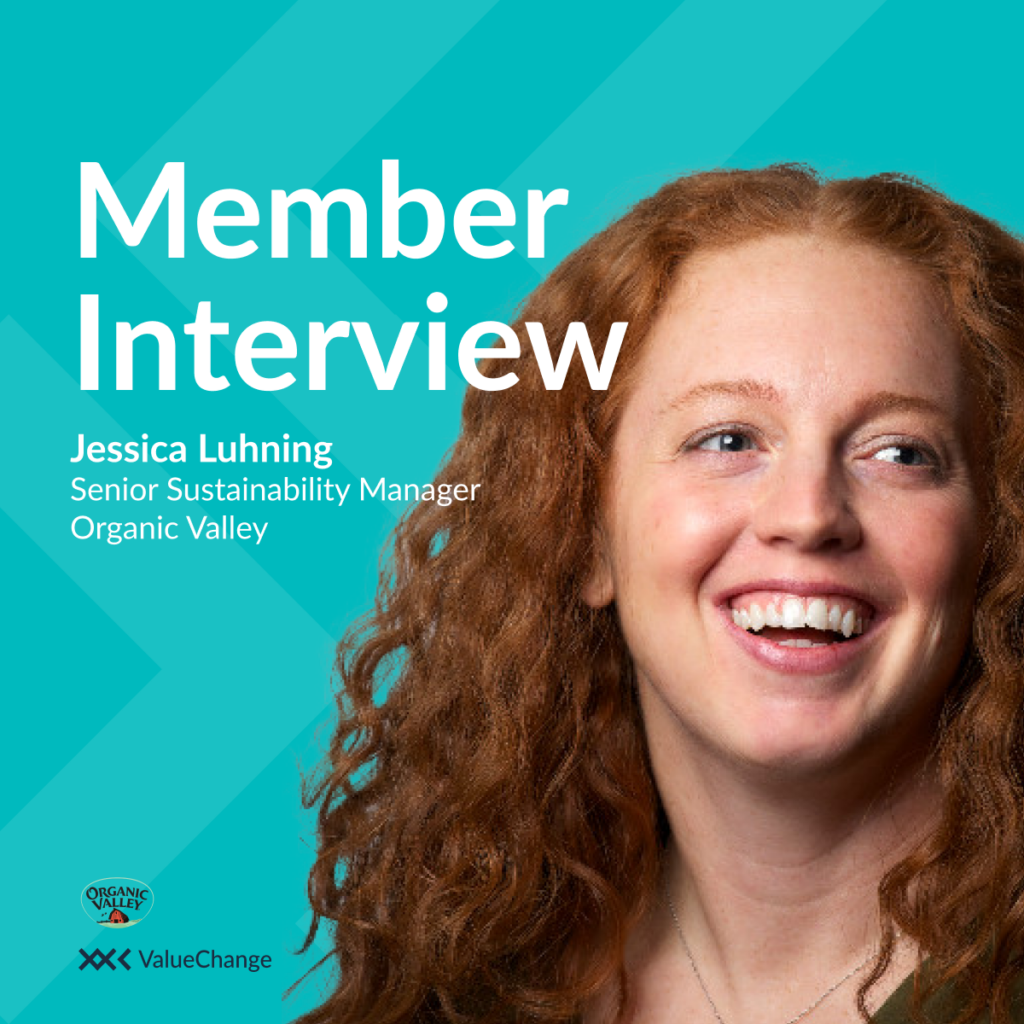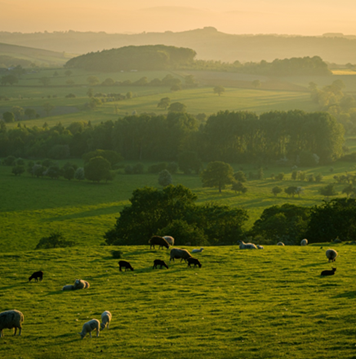4 questions to Organic Valley on joining the VCI Food & Agriculture Working Group
Dino De Francesco
Kicking off in November 2023, the Value Change Initiative (VCI) is hosting a Food & Agriculture Working Group - bringing together companies from the Food & Agriculture sectors to collectively work on removing barriers to account, report and claim Scope 3 decarbonisation interventions, and with this accelerate the transition to a Net Zero sector.
Ahead of the Working Group launch, we sat down with Jessica Luhning, Senior Sustainability Manager at Organic Valley, an organic farmer-owned cooperative. In this interview, she shares her insight on Organic Valley’s plans in the realm of value chain emissions, the challenges they have faced in Scope 3 action and what they expect to gain by joining the VCI Working Group.

1. What targets has Organic Valley set to reduce value chain emissions?
A comprehensive greenhouse gas (GHG) inventory from 2019revealed that nearly 90% of our total GHG emissions, encompassing Scopes 1, 2, and 3, come from on-farm activities, primarily milk production. Understanding the urgency of climate change, we have set ourselves the goal of achieving carbon neutrality from farm to retail dock by 2050, with interim milestones for 2030 and 2035..
Tackling value chain emissions is a critical part of our sustainability strategy and our approach to climate change. Our strategy to reduce these emissions, which are often the most challenging to mitigate, involves comprehensive supply chain management and innovative farming practices. These include dairy herd feed supplements that reduce enteric methane emissions, and silvopasture – meaning the integration of trees into pasture-based grazing systems – which can result in significant carbon removals.
Our journey towards sustainability and carbon neutrality is not just important for our operations but we also hope to serve as a model for other companies facing similar challenges in the food and agriculture sectors.
2. What is Organic Valley doing to reduce value chain emissions?
In our commitment to reducing value chain emissions, we have initiated an industry-leading carbon insetting program, known as OV-CIP. Through this programme, we are incentivising our member farms to implement farm-level interventions that lead to verified GHG emission reductions and carbon removals, which go above and beyond our low carbon baseline. This initiative is a critical step in not just reducing value chain emissions but actively removing carbon from the atmosphere, and is a key part of our strategy to meet our sustainability goals.
To support this endeavor, we've received a significant boost through a $25 million USDA Partnerships for Climate-Smart Commodities Grant. This grant is a testament to the innovation and impact of our programme. It enables us to invest more in these interventions, helping our member farms to adopt practices that are both environmentally sustainable and economically viable. By focusing on farm-level changes, we are addressing emissions at their source, which is crucial for making a real impact in our value chain.
3. What are examples of the biggest Scope 3 challenges you are facing?
The fact that nearly 90% of the total GHG emissions at Organic Valley come from on-farm production highlights our Scope 3 challenge: effectively scaling and aggregating intervention practices across our diverse network of small to medium-sized farms in the United States. Each farm requires a tailored approach to environmental practices, which is a complex task given their unique characteristics and requirements. Our goal is to implement these practices in a way that's both environmentally beneficial and suitable for each farm's specific conditions, ensuring our collective actions contribute meaningfully to our overall emission reduction goals.
4. What are you expecting from joining the VCI Food and Agriculture Working Group and collaboration with VCI members?
We at Organic Valley believe in the immense potential of VCI's approach to achieving verified carbon outcomes and value chain co-claiming. This approach is particularly relevant in the rapidly evolving landscape of carbon accounting, where transparency and legitimacy are crucial.
Through our collaboration with VCI members, we expect to gain substantial insights and knowledge including how to: 1) get ready for future verification; 2) create more efficiency while scaling impact with project quantification and validation; and 3) scale corporate participation and co-claiming opportunities.
Join Organic Valley and our other members in tackling challenges in value chain emissions accounting through the Food & Agriculture Working Group.
About Organic Valley
Organic Valley is a leading organic farmer-owned cooperative on a mission to save, serve and safeguard small organic family farms. The brand's products are ethically sourced, which they define as food raised on organic farms where families manage the daily care for the animals and the earth while living up to the requirements of the USDA National Organic Program as well as our cooperative's own high standards and practices. These are designed to promote the principles of organic agriculture, including respect for the dignity and interdependence of human, animal, plant, soil and global life.
Founded in 1988, today the cooperative is owned by over 1,600 organic family farms. Organic Valley small family farms steward more than 450,000 combined organic acres and practice pasture-based livestock management.

